How YDC Theatre Leaders Are Navigating Malawi’s Changing Theatre Environment
Fumbani Innot Phiri Jr: Welcome to Critical Stages in Malawian Contemporary Theatre Podcast, produced for HowlRound Theatre Commons, a free and open platform for theatre makers worldwide, in partnership with Advancing Arts Forward, a movement to advance equity, inclusion, and justice through the arts by creating a liberated space that uplift you and encourage us to change the world. I am your host, Fumbani Innot Phiri, Jr., a producer, actor, director, playwright, and of course, a freelance journalist.
Critical Stages in Malawian Contemporary Theatre, I interview established theatre artists from all backgrounds to explore the precarious journey of theatre in a modern world, define the problem, and find the better solution to sustain us in a generation of motion pictures. In this podcast, I lead the discussion with established performers, directors, writers who are exploring ways to greet these challenges while their works inspire the community.
All right, dear listeners, today’s edition, I’m with YDC creatives. As I said, it’s a prominent theatre in Malawi with youngsters, actors, directors, from YDC Theatre. Guys, welcome to this edition of Critical Stages in Contemporary Malawian Theatre. Everyone should have a bit of introduction, a simple one, and maybe I’ll start with Prince.
Prince Kazembe: My name is Prince Kazembe. I’m a member of YDC. I started my journey in theatre at Solomonic Peacocks Theatre, where I underwent theatre classes. That was way back in 2015. I performed for the very first time in a play titled Romeo and Juliet at secondary school. That was in 2016. I think that would be all for now.
Deborah Butao: Well, I’m Deborah Butao, and I’m also a member of YDC. I started acting when I was in high school. That was 2014. So I was also casted in a play Oppressed Souls, and then I continued with my acting as a professional now at Solomonic, then from there, I joined YDC.
Ngwenyama Nkhata: Yes, my name is Ngwenyama Nkhata, I have been acting maybe now for six to seven years. I started my acting in Lilongwe Rise Arts Theatre.. My first production was Chronicles of Santha, so from there, I met these guys of YDC in Zimbabwe, then when I moved to Blantyre is when I joined YDC, now 2019. So I think that’ll be all for now.
Bright Africa Makina: Hi, my name is Bright Africa Makina. I studied theatre, I’m going to say, thirteen years back, so now I’m a member of YDC. Thank you.
Fumbani: Oh, thirteen years back?
Bright: Yes.
Fumbani: Oh, quite a long time.
Bright: Indeed.
Evelyn Kaipa: Well, I’m Evelyn Kaipa, I’m a member of YDC Theatre. I started acting in 2015, and then I joined YDC in 2019. Yeah, that’s it.
Fumbani: Okay, we have youngsters with different backgrounds, some who started at Solomonic, some of you from high school, and we have someone who get connected with a team from Zimbabwe, and we have a guy who have been in the industry for quite a bit of a long time, huh? So guys, YDC. Previously, I was okay to discuss with Jack Musumba, the Creative Director of YDC. He talked more about YDC and how the whole organization was founded. I’m very proud to be part of the team as well.
So the world needs to know how YDC is flowing, with youngsters like you. So you are the one that is holding the whole organization, running the management, and also learning the creative team as well. And with diversity of background, some who started from high school, some who started already after they finished high school from professional theatre groups, and yeah.
Now, YDC is there as the prominent theatre in Malawi, conducting different projects, several initiatives, but most of the people understand theatre as just normal drama performances in Malawi. What do you take that language as theatre, as just a normal drama performance, not as a professional?
Prince: Okay, for starters, you are indeed right. People here in Malawi take theatre as a typical drama performance, but then we decided to take a different angle from just performing as drama, to bring in the contemporary aspect in it, and not just about a theatre only. As youth, we decided to create an organization, not-for-profit organization. So when we’re coming up with the name, YDC, which means Youth Developers Collaboration, it was all about bringing in different talents from different youths, be it painting, music, poetry, and drama, to fuse this together to become a contemporary thing. So basically, it was about creating our own jobs and not waiting for the government, so it’s about using our talent to create our own jobs for our own livelihoods.
You see, many youth out there are wallowing away. We’ve got graduates. Recently, there was this graduate from Exploits University we saw that was burning her own degree. Imagine it was a business management degree that she was burning. So we want such people to come into this organization as youths. She cannot be talented, but then she can bring in her ideologies that she has learned from the university, and help us in the running of the organization, thus creating our own jobs opportunities. We cannot wait for the government. We’ve got a whole lot of talent which we can harness and create our own job opportunities.
Fumbani: Yeah, I quoted you saying, “We cannot wait for the government.”
Prince: Yes.
Fumbani: Why do you think the government is reluctant to support the art industry, mainly focusing on theatre?
Prince: I think the government is reluctant to support the art industry because of priorities.
Fumbani: Priorities?
Prince: Yes.
Evelyn: Exactly.
Prince: I would talk of priorities, because when you listen to the parliamentary sessions, the budget sessions, they come up with... they prefer to allocate money to the sporting industry. Now, way back, I’ll take you back to the prime time, Du Chisiza. That time, you used to have Du Chisiza performing at French Cultural Center, and then you’d have the Blantyre deby, you understand? But then you’d see the performance of Du Chisiza full to capacity.
Fumbani: Sold-out show.
Prince: Sold-out show. So every aspect in Malawi has got its own people. We are a lot of people in Malawi, over seventeen million. We have all different interests. You might have your interest in the creatives, in theatre. Some have their interest in football, but then I feel like our government—and not just our government, even the corporate world—we, as the youth, have been facing a lot of difficulties.
If we approach the corporate world we tell them, “We have got this event that we want to...” or project, per se. “We want support from you,” but then the corporate world would want to look at numbers. They would say, “There are no numbers in theatre,” but that’s a lie. There are a lot of numbers in theatre. Even their adverts that they do, it’s all theatre; there’s acting in there, you understand? So we need to have a change in mindsets.
Fumbani: All right, a change in mindset. We’ll tackle that one as well.
Still in the government area, Ngwenyama, I remember your first trip to Zimbabwe. Rise and YDC collaborated on the proposal for the government to support their trip to Zimbabwe, but it was negative response from the government, without a single support or a single reference letter. Why do you think it was such a problem towards the youngsters?
Ngwenyama: Usually, one of the problems that I have discovered here in Malawi, it’s about, there are some people, they have good policies, or maybe they have good ideas, but it’s hard for someone, be it the government, some companies, to invest in somebody’s ideas, because we tried our best to apply. Maybe they could have help us, maybe in terms of transport, or maybe other things, but they failed because maybe they were asking themselves that, “What benefit are we going to get from this?”
So as we see art, it’s something that we cannot live without, because art is life. Art is what is making people to move forward. So I don’t know, I don’t know, but maybe the problem is lack of trust, I don’t know, or maybe... should I say maybe we don’t have the right people in the right positions in the government? Because we have the art industry, and an artist is going where he belongs to ask for help, but people are failing to help that person.
And so, okay, what are they doing there? Because they are there for us, they are there to save us, so if we are going there to ask for help, and they’re not giving us the help, so they are not representing us, they are representing themselves. So I think it’s high time they start representing us, because you cannot say you are fighting for something, but those people who you are fighting for, when they come to you seeking for help, you just say, “Okay, we’ll get back to you. We’ll get back to you in ten years time.” So I think maybe I cannot say we must change, as in the people, but maybe, I believe the system was built this way, so I think it’s high time we change the system, because—
Fumbani: You say you think the system was built in this way?
Ngwenyama: Yes.
Fumbani: And you also think we need to change the system. How can we change the system? How can we change the system?
Bright: Can I get in?
Fumbani: Yes, you can get in.
Bright: The problem in Malawi, it’s like we think art is just a hobby, not a career. So even the people on top management, they don’t support art, and the first problem that we do, we put someone who is not an artist to head the art department. Someone maybe studying agriculture you’re taking to head art, which is out of control, which is—
Fumbani: But currently, you have an artist as the minister in your department. What is happening?
Bright: Okay, he’s there, but he’s there doing things that promote himself because he don’t engage artists. He don’t even involve the youth to be part of it because he see competition, not supporting the thing.
Fumbani: Okay
Bright: Whoever is good, he think he’s competed. But he’s there to support the art, so he should be there supporting, serving, the nation in promoting the art, no matter who is there.
Fumbani: Okay—
Deborah: But, but I need to add, I think the government only helps where there’s money already. For example, the football, football. There is a lot of money. People make a lot of money from the football so...
Fumbani: Okay, when you say when there is money, that benefit only those gatekeepers, or... I can say gatekeepers. What I’m trying to say, like gatekeepers, I’m trying to say those politicians, to benefit themselves, not the nation.
Deborah: Yeah, exactly, so they cannot support art theatre because they think that they cannot benefit from it. YDC is a nonprofit organization, so they cannot help where there is no money, where we cannot... we don’t get more money, so they always support those kind of sporting.
Fumbani: Do you think there is no money in art?
Bright: There is.
Deborah: There is money, but we don’t see it. They don’t see it.
Bright: And there is hidden treasure in art, in the creative industry in general.
Fumbani: He says there is hidden treasure in art. It’s true. Okay, yes, I quoted how hearted you say that about our minister. It’s true, to see a young artist expressing their view how the industry has been rooted for the past two decades. So don’t you think one of the reasons the government don’t support the art industry is like, art is a threat to them? Don’t you think it’s like that?
Bright: Yes, art is a threat.
Ngwenyama: It can be a threat if the government is not doing what is right, because an artist speaks for those who cannot speak. So we as artists, we speak for those who don’t have a voice. Okay, they have a voice, but maybe they cannot express it, but we, as artists, we express those voice in any way that we want. So if the government is not doing what is right with the people, so the government will be afraid of the artists. So if we support them, they will expose us to the local people. So if the government is doing right, then there’s no way you can fear an artist, because you are doing what is right for the people, so I think they’re afraid because maybe in some areas, they’re not doing what is right.
Fumbani: All right, so it seems like for the past three decades, the government has been doing negative to the society.
Ngwenyama: We—
Bright: Yes, and can say it’s ironic how government don’t support art, yet the same politicians use artists as their political puppets during the campaigns, so—
Evelyn: Yes.
Deborah: Exactly.
Bright: We have so many questions than answers.
Fumbani: So you, the artist, now you are suffering, they’re not supporting you, but during the campaigns—
Deborah: Because they want us.
Fumbani: They want you, but also, you go there.
Evelyn: Yes, we do. We have no choice.
Fumbani: You have no choice?
Evelyn: Yeah, we go there—
Fumbani: And initiate the campaigns?
Evelyn: Yes.
Fumbani: Won supporters?
Evelyn: Mm-hmm.
Fumbani: Okay. I think it’s high time you need to back out.
Ngwenyama: We can back out, but mind you, we have families. We have responsibilities. So we look at how our country is, so if we back out now—
Fumbani: We can say the theatre industry is at limbo.
Ngwenyama: Yes, we can say that, because we have families to feed, and we have responsibilities, so I don’t know, but...
Bright: I think most of artists, to follow the Bible, out get food, so they go where they can get money to feed their family that day. But in a real sense, acting, theatre, is a career whereby an artist can earn a lot that can feed their families for a month, even with one show, but here, it’s something different.
Fumbani: Okay, so all these problems, YDC now is a prominent theatre. For the past four years, you have survived. You have survived, and you never missed two or three months without a show. You have been there during the struggle of COVID. You have been there, representing the nation with ways, and like a mouthpiece of a society. What is the secret behind you youngsters to keep on going?
Bright: Okay, the secret is simple. We’re artists, and it’s our passion, so we are driven by passion.
Ngwenyama: And to add on it, an artist is a leader. So a leader, he knows the way, he shows the people the way, and he also goes the same way. So we are going nowhere. We are here, so we are leaders, so we have to lead by an example: going the same way that we have showed people that this is the way. So we need to be the first ones to go in that direction.
It’s ironic how government don’t support art, yet the same politicians use artists as their political puppets during the campaigns.
Deborah: We are not giving up.
Evelyn: We’re not giving it up...
Prince: Just to add on the same, one of the core values of YDC is to harness talent in order to create job opportunities. I still go back to, say, we are facing a whole lot of challenges here in Malawi. As youths, we are facing a lot of challenges, be it job opportunities. There are no job opportunities out there. So we came together as youths, like I already said, and collaborated to come up with this theatre organization.
So the main aim of the theatre organization was to create our own jobs using our talents. Now, we have created the jobs. If we are to leave the jobs, who are we leaving it for? What are we going to do? We do not want to go back on the streets and be imbibing on those illicits, beer. No, we do not want that. We want to create a conducive environment for ourselves since the politicians have failed us. They promised us a whole lot during the campaign period, so our aim is to make things happen, change things. How do we do that? Our voice is in theatre, so we strive till our voice is heard.
Fumbani: Our voice is in theatre, and you’re still surviving because you have the voice.
Prince: Yes, we are the voice.
Evelyn: Yes, we are the voice.
Fumbani: All right, so for quite some time, I discovered YDC has been creating contemporary productions that speaks about Malawi and speaks about the whole world, and it’s in the reflection. There is one production that reflected the whole situation you’re talking about here, Politicians, Politicians, and you utilize that production to speak your voice about art and government.
So through your exploration, you have created performances for young people, done by young people, and you’re still doing performances for young people and by young people.
Why is it the secret, as YDC is using this space as the lab for youngsters to create web for performances? what is important about that? Or I can just—
Prince: Can you rephrase it—
Fumbani: I can just rephrase to say, why do you keep on using fellow youth to create performances for young people?
Ngwenyama: If you have discovered, leaders, they use young people because they know that we are still energetic, our minds are still fresh, we can work day in and day out, 24/7, without resting. So we, as YDC, we know that there is more potential in young stars, so we know that if we take a youngster, they have new ideas, they have new blood, so what we need now is new blood in the system, because we have seen how the old blood is filling us. So if we rely much on the old blood, I think YDC could have maybe died two or three years ago, but we know that the young stars, we have new ideas, because as time is changing, we also make a change. So this is new generation, twenty-first century, so we need to start thinking as people who are a new generation, so maybe that’s how I can tap in and friends will add.
Fumbani: All right. Now, YDC, Youth Developers Collaboration—
Prince: Collaboration.
Evelyn: Collaboration.
Fumbani: So the word, “collaboration,” has manifested in a lot of productions, whereby we could watch a performance and say, “Okay, I think this is real collaboration, there is a hand work of each and everyone in the production,” and even, Deborah, what is the role of girls in YDC, in the creative part? Is it only the male guys who are working in the creative side?
Deborah: No, they are not, only boys, also girls. We are also working in the creative side. We have, Evee-
Evelyn: And I myself I’m an artist welfare.
Fumbani: So you deal with the welfare of the youngsters, welfare of the actors. So is it a challenging role for you to work with youngsters and see how their welfare, life, is going?
Evelyn: Not really. It’s not even challenging, because when we are working with the youngsters, it’s a matter of understanding each other, because when they have a problem, they come to me and say, “This is what we are facing in YDC, what part,” so it’s still challenging.
Fumbani: Yeah, it’s simple because you’re also part of the generation, the language is just the same, you work together. And of course, in the creative part, we watched The V Monologue. For quite some time, like two years, you have been performing The V Monologue, which is a all-female production. What was the experience? You two, you were part of the cast, you’re part of the directing team. What was the experience?
Deborah: Well, it was quite a great experience, because being in a all-female production , it wasn’t easy. It was quite challenging. People were like, “How can you do a performance well? Can you do a play with all-female casting?” So it was quite challenging. And even The V Monologues, it talks about our culture, it talks about gender-based violence, it talks a lot about girls’ challenges that we women face in the society. So it was quite challenging, and even The V Monologues, it’s a Vagina Monologue, so that type of a play, it was hard for us to—
Fumbani: For Malawi culture to consume.
Deborah: Yeah, to consume it, because there were some other scenarios that it was very hard to portray in public. So we had to overcome that kind of challenge, and then we did it. It’s all about boys, it’s not about... but we women are also strong. We are also perfect for the thing to do it, so we did it, we overcome every challenge that came in our way, so—
Fumbani: Quite a balance, quite a balance. I can see the work of collaboration, and also believing in each other is what is keeping this organization strong and moving forward. So currently, between 2012 up to now, we have seen a diversity of productions in Malawi, diversity of support in Malawi. Yes, the governments are supporting the industry, but we’ve seen some partial, and part of the way, we’ve seen support from the donors, international donors, and also maybe a year without funding from the international donors.
But way back in the past, there was a generation whereby there was no international donor, but theatre was excessive, and there was a time whereby Malawi was flowed with international donors, people claimed the theatre was successful because people enjoyed the payment, the allowances and stuff, then after the donor element, then you went back; I can guess that you know that generation. Then after that, people claimed the theatre died.
Evelyn: Yes.
Fumbani: People claimed the theatre died, and the slow by slow, the new-coming and revamped theatre, and still keeping on and on. Do you think going back to the element of donor syndrome would be a proper ideal for you? It’s a tricky one, huh?
Bright: Yeah.
Deborah: Yes
Fumbani: It’s a tricky one. Okay, it’s like for most of the guests I’ve been having in this conversation, some, they have to argue to say, “Donors, I guess, are okay depending on what they want you to do with your funds.: They might direct you to do something which you are not ready to do, but maybe because there is money, you are forced to do that thing, and they kill creativity, some say.
Bright: Sometimes donations, or support, comes with conditions. So there’s some conditions that force you to do something which you don’t like, but you do it just to get the money. But I can say, if support from outside is coming without any conditions attached, but say, “Okay, do as you please, do your own way,” I can say that’s fine, but if coming with conditions, that’s a danger part of it.
Ngwenyama: Yeah, maybe the conditions may be like... okay, for example, here in Malawi, we have our own culture. We have how the ways of Malawian life, so if maybe the donors come with maybe conditions, maybe you may look at the condition. Does this condition tally up with Malawian culture, or does it bring maybe confusion among the culture, or maybe our belief?
So maybe if the conditions are okay with the Malawian culture, I think that’s fine to take the donations. But if you look at the conditions, and you come back to the audience, because we are performing to the Malawian culture… So if you are doing something which is contrary to Malawian culture, people won’t receive it. So I think it’ll depend on the conditions which the donors, they have given us. “Okay, we’ll give you such amount, but these are our conditions,” or, “This is what we want you to do,” so it will depend on the conditions.
Fumbani: Oh, you depend on the conditions?
Evelyn: Yeah.
Prince: It is a very tricky question.
Ngwenyama: Yes, Yeah, Yeah.
Prince: But it all goes down to sustainability. For the smooth running of the organization, we need funds to come in. So I’ll still take you back. During the days, there was less of entertainment in the homes, then there was no—
Fumbani: TV station—
Prince: TV stations as we have now. The rapid growth in technology has contributed to the decline in patronage when it comes to theatre, because right now, there is that competition whereby people can now find entertainment in their homes. They can watch a variety of TV stations that bring a variety of entertainment, ranging from movies, series, and football as well, at the comfort of their home.
So now, this brings in competition to the theatre world, whereby YDC has got a performance on a Sunday afternoon, and our own audience which we rely on might choose not to patronize our performance because they’ve got a favorite TV program that is coming on on that very particular afternoon, so it is a compromise now. They would rather watch at home rather than go and patronize theatre.
So that competition has brought about difficulties in finances for the organization. So for the smooth running of the organization, we need finances, but then it is difficult since we rely much on commercial performances for the smooth running of our organization. So this donor syndrome is very difficult to run away from because of sustainability. So for us to sustain our organization, we need money, and where do we get chunks of money? It’s from the donors, so it’s indeed a very difficult one.
Bright: Let me come in but… sorry, let me come in, but I don’t know if it will be contrary to it. But here in Malawi, so many companies are complaining that they’re not making money. They promote, they ask us, to buy Malawi, yet they’re failing to promote art. So let’s say the performances, theatre performances, and those companies, they’re supporting the performances. That means we, the artists, the theatre guys, we’ll be the ones promoting the what? The products.
We’ll be the ones selling their products, but they choose deliberately to give a blind eye to art, yet they’re into business, so they can make business while ignoring art. So it’s also a plea to companies, apart from depending on donors, we need to work hand in hand with companies so that they should learn to sponsor the performances in a way of promoting their products, because the more they’re supporting the artists, the more we are promoting their products, and the more people get to know about their products as well.
Fumbani: And to avoid the donors, yes.
Prince: We need to take the bull by its horn. Speaking from an artist perspective, my colleague, Bright Africa Makina, has very well articulated it. But then from a marketer’s perspective now, it is difficult for the corporate world to support art, basically because of the competition that I’ve said, the competition that has come in because of the advancements in technology. There is no patronage as compared to the previous era. There was high patronage then because there was no competition.
Fumbani: And there was one radio station.
Prince: Exactly, and you... I give an example of Blantyre deby, the Kamuzu Stadium, the football cathedral, and a theatre performance by Wankhumbata at French Cultural Center.
Fumbani: Just a few meters away.
Prince: Just a few meters away. The football cathedral will be full to capacity, as well as the theatre center, would also be filled to capacity. But then now, it is difficult to have such happen, because people have got entertainment in their homes. Now, organizations, the corporate world, looks at numbers, they looks at numbers, so if you try to source support from the corporate world, I have met a couple of marketers trying to sell out the idea of YDC ideologies, but then they still go back to say, “What are your numbers on the ground?” you get? So it is a challenge. It is a very big challenge.
I just urge the communities out there to support theatre, because if the community supports theatre, the people down there supports theatre, they patronize theatre, they come to performances, the organizations would actually see that there is benefit in theatre. But then people go to the stadiums, the organizations see that there are—
Bright: Numbers yes.
Prince: Yeah, numbers at the stadiums. In football, there’s numbers in football. For example, here in Malawi, we’ve got FDH Cup, with millions of Malawi kwacha. It’s about 25 million or something going up there. We’ve got the TNM Super League. It’s about 60 million kwacha. These are big corporate institutions that have supporting football because of the numbers.
Bright: But I think..., it’s all about adaptation, because the more they’re coming, the more people will also be coming, because—
Prince: But—
Bright: Okay, let’s talk way back. There was Mxit, there was Facebook, and a lot of people were into those channels, and... came WhatsApp. How many people are on WhatsApp now?
Deborah: A lot of them.
Prince: Millions, a lot of them.
Bright: It’s about adaptation. So if they can come in, people still adapt their things.
Fumbani: Okay, it’s kind of like you have that competition, now you need to adapt, how the industry is, how to fit with the industry, and as the example, you said there was Mxit; people were full of it, then Twitter came in, then WhatsApp came in, and still on—despite there are a lot of platforms on the internet, new platforms are still coming.
Deborah: Still coming.
Fumbani: Today is TikTok. You have Instagram. They still fit. They still fit, but they still connect.
Bright: There’s everything for everyone.
Fumbani: So even theatre can still fit in those spaces, and still taking a share of the audience.
Ngwenyama: That’s why I say...
Prince: Now, the topic should be, how do we fit in as theatre practitioners to fight the advancements in technology? We can as well use technology to fight technology, you understand? We can go digital, we can go digital. We can have programs that are pure theatre programs in TV stations. Our TV stations in Malawi provide the very same content, you understand? We’ve got organizations like LYCO, they go into the schools and bring out the competitions all in the name of promoting theatre. Those things can be televised. Once those things are televised, we would now get people having a whole different view of what theatre is, because it is evolving. It is no longer the same. So once they pick interest in that, I believe we can have patronage in the theatre performances.
Fumbani: Yeah, okay. All right.
He said we need to change theatre to be fast theatre. People can consume theatre while sitting at home, digitally, and that’s why this is experimenting theatre in Malawi.
Deborah: Yeah, I support that, that all our plays or our performance should be televised. Because most of the people, they do ask us, “Don’t you have a TV station? Don’t you have where we can watch at home?” all that, “Instead of just going to your show, pay for it, and watch there?” So I think that one would be a best...
Fumbani: I think.... and she says that would be the best. In a brief about the whole podcast, I put a notion say, “Theatre in the world of motion pictures.” So currently, people want to see pictures in a fast way, so people can go on the internet and see some reels, some shows on YouTube. So I think, as you say, you need to adapt, we need to get the adaptation. But how can we adapt, as you said?
She manifested it, saying people were asking you, “How can we watch your performances, apart from going to theatre spaces?” You see, generation changes. People are becoming lazy a bit to just move around. Some people like to choose to watch a performance while at home, so you can put, as you said, digitally. I can say, for example, we have radio plays in quite we can say radio drama series has a vast audience comparing to any type of media of drama in Malawi.
Prince: That is true.
Fumbani: No movie can beat any radio drama series in Malawi because radio is everywhere. Rdio is in your phone. In your phone, you can have a radio in your phone, you can have a podcast. Apart from there, you can listen to the radio play, because people needs fast things. They can be in their cars, listening to your plays. They can be in their homes, on their phones, watching your play online. I think—
Bright: Even people nowadays don’t cook, they prefer fast food. So let’s do... there’s something with that.
Deborah: Yes like that.
Fumbani: He said we need to change theatre to be fast theatre. People can consume theatre while sitting at home, digitally, and that’s why this is experimenting theatre in Malawi. I can see now why YDC is sustainable in producing content, producing more productions in Malawi.
Bright: Because we are the leaders of today. They say youth are the leaders of tomorrow, but we are the leaders of today. If we wait to be the leaders—
Deborah: The leaders of tomorrow all of us, we’ll get old.
Bright: That’s why you’ll find in office old people, they just back go into office and sleep, and go back at 5:00, because they’re not productive, but it’s us, the youth, who are productive, so we are productive leaders.
Fumbani: I’m just happy because this conversation is quite different from others. You are still knocking more on leaders each and every time you... There is a problem, you’re knocking on leaders. I think—
Bright: Yeah, because they are the leaders—
Ngwenyama: Okay, these leaders, they are our parents, so it is a dream of every parent to see his children succeed in life, so I can say we will continue speaking until they hear us, even if they ignore us, but we are not resting anymore. We will continue to knock until they listen to our voice. If they aren’t listening, we’ll speak much louder in order for them to hear our voices, so that things must be changed.
Evelyn: Be heard.
Ngwenyama: Because we want to change the generation which is to come. We want to leave a good legacy for those who are coming.
Evelyn: Our children.
Ngwenyama: Our children. The need to feel that, “Our parents struggled,” or, “They fought for something nice,” because, okay, we are talking about, as in here in Malawi, we are talking about 2063. Maybe I will be old, maybe I will be there, but those, there must be... we must create a conducive environment for them. They must not start from the beginning also. No, they have to start from somewhere, so we are building a foundation for those who are coming.
Bright: Okay, aah...
Fumbani: You’re still young, but you’re building a foundation.
Ngwenyama: Yes.
Deborah: Yes.
Bright: Success goes good with great leadership. We talk about YDC. YDC is still there because the leadership’s so strong and very productive. Had it been YDC had lazy leaders, people who are not productive, who couldn’t be here.
Fumbani: All right. Okay, leadership is also important in the creative industry. Okay. All right, so YDC is there, is struggling, still producing productions.
Now let’s go to productions. You have produced quite a number of shows. Quite diversity, collaborative, creative. Each one, if you can just express one of the productions which you feel like, “Okay, I’ve been in YDC, but this production inspires me a lot because of this and that… I’ve been in YDC. I think that production, I was not there, but inspires me this…” and why—and why do you think YDC is putting such type of productions?
Ngwenyama: I’ll say time is changing, so when time is changing, we must also change. For example, the way people are presenting theatre back then and now theatre has changed. People are bringing in new ideas. For example, here in Malawi, I can say we don’t have more productions, musical productions, or physical theatre. So as in... Since I joined YDC, I have seen that YDC is able to accommodate any art or any talent.
For example, there’s this production called the Journey at Lampeduza. I love the Journey at Lampeduza so much because it’s a physical production, and the way we present the Journey at Lampeduza is, people are like, “Is this theatre?” We said, “Yes, that’s theatre, but in a different angle now.” So we wanted to run away from the old presentation of theatre, because people are seeing new things. People, they want to see things that maybe they have never seen before.
So as YDC, we are bringing in new things on the table. People should be like, “What is this? I have to watch this.” We have to give them the thirsty to watch theatre, because we are bringing in new ideas, because we are all youngsters. We are able to go on the internet, see how our friends are doing theatre in other countries, so we borrow a lift from them. Then after that, we come back to us, “Okay, guys, this is how theatre now is going in the whole world,” so we want to move with time.
As people are moving maybe at a slow pace, we also have to move at a slow pace, but now, technology is going up, so we must also change. We must receive change, because there are some people that are very reluctant to change. But at YDC, we are flexible enough to receive new ideas and to present those ideas in a unique way, so I think that’s how I can say something about it. Maybe my colleagues will add something.
Bright: Okay. In YDC, we have done quite plays. There are some... okay, in general, in Malawi, most people do plays that are just there for entertainment. You laugh, you go home, you forget, but in YDC, we dwell much in realism, whereby the plays, when people watch, they can relate to their everyday life, they can relate to what happened way back. We talk more about history, we talk about the present, we talk about the future, so that people will take all the generations at one place.
So we have done so many plays, like Journey at Lampeduza, which is, I can say, so far my favorite play, because it has done so much. And we talk more about history that the world don’t talk about, most even the media don’t talk about, but we bring those issues to open the eyes of people. As artists, we are the eyes of people. As artists, we are the mouth of the people. As the artist, we are the heartbeat to the dead hearts, so that’s why we love doing this.
Fumbani: All right. Okay. Deborah?
Deborah: Yeah, I’ve been in so many plays in YDC. I love all of them. I love all of them. There’s Walking Ngwazi. I was there, and I’m also an awarding. I’m best actress, I’ve gotten award from the Walking Ngwazi. And I also love 2084. 2084, it talks about climate change, so I really love it because we are telling people to take care of the environment so that the next generation should not suffer. Yeah, so I really love that. There are a lot of them, but that’s one of them—
Fumbani: All right.
Deborah: Yeah.
Prince: All right.
Fumbani: Prince?
Prince: I have performed quite a number of plays since I joined YDC, but I was very much inspired with the project, which is Theatre for Education, where we devised a Shakespearean play, Macbeth, which we perform, we have performed quite in a number of schools, all in the name of fusing entertainment and education, whereby... I think there was a loud call after the change of the syllabus that students had difficulties in understanding Macbeth.
So as youths, we came together, sat down, and collaborated, devised the play into a stage performance, which made it a little bit easier for the students to comprehend, and there was a change. The feedback itself gave me a whole lot of inspiration—the feedback from both the students, and as well as the teachers, after the students have given their exams and all. This gave us the vigor to go on and to perform Macbeth even though it had no funding, but we have performed in quite a number of districts here in Malawi, and we really would want to perform in nationwide, but it is quite challenging.
We have tried to contact the government as well, since it falls under the Ministry of Education. There is a loud cry out there on Macbeth. We would want to go deep into literature as YDC, to go out there and disseminate plays in form of education, and as well as entertainment. So we urge the corporate world, and as well as the government through the Ministry of Education, to support our project. It cannot just be within Malawi. The help cannot just come from Malawi, since your podcast can be presented worldwide, so—
Fumbani: Yeah, like the network for you.
Prince: It is an outcry to Malawi, the corporate world in Malawi, the ministry, and as well as out there, please support us. It is not for the benefit of YDC, it is for the benefit of the country, the nation at large. It is for the benefit of students, the future leaders that are coming out there, so I’ve been very much inspired with this project and this production very much.
Fumbani: Yeah, cool.
Bright: Okay, Prince has brought in the good example, and you talked about Theatre for Education, so I’ll go back to leadership. You can see that everything is marrying now. After producing the Macbeth, we sent even later to Ministry of Education, right?
Fumbani: Yeah.
Bright: I didn’t think we had a great leadership that would’ve seen the value into that play. They could have seen the value of that play, and they could have supported it. It would’ve been a must for them to support it, to tour with the with the play, from Nsanje to Chitipa, the whole country, in schools, and it would’ve been beneficial to the students, not just to audience.
Fumbani: Only not all of the students, even would’ve created a stable, long-term space of employment for you youngsters because to tour the whole country for the performance is not easy. You spend time, days, your energy, it’s like a long-term project for you to work it out. And you talked about leadership, and they brought in a very cumbersome book for the youngsters, Malawians. They’re not from England. We were born here—
Bright: We, okay for sure.
Fumbani: So the book is from England. For them to consume the understanding of English, understanding of literature, and also understanding the culture of that book, is very difficult for them to consume that book in a space of two years, so theatre simplifies everything. So now, the governments reject even the proposal, say, “We don’t have funding.”
Ngwenyama: But that’s why I have said the government, or maybe people, are failing to invest in the ideas of someone. Had it been that maybe they’re able to invest in the ideas of someone, this country could’ve been somewhere else, because we have people who have good ideas. So I think maybe people should start investing in other people’s ideas, because there are some times, maybe, I don’t know if... what I’ll say is fine, but I’ll say it, that sometimes, you may have the, the resources, like maybe money, but maybe you may not have a long-lasting idea.
So it’s high time you give space, or you allow people to give you ideas, then because you have the resources, then you invest in those ideas which will help maybe not only you, or not only the owner of the idea, but maybe the nation at large. So it’s high time people should realize that they need to start investing in other people’s ideas, because that’s how the world is moving. You have an idea, then some people will come, and they will invest in that idea, and together, you move as one. Then things will start happening.
Fumbani: Hm, Evee, I’ll ask the most production of you, you say, “Okay, this production’s something else for me.”
Evelyn: Well, as my friends have already said, in YDC, there’s a lot of plays, but my favorite is The Vagina Monologues. I really love that play so much, and I love everything about The V, because it talks a lot about a girl child, it talks a lot about gender-based violence—even the way it attracts the audience. I love that play so much because there are some scenarios that we face as girls in our everyday life, so that’s my favorite play in YDC.
Fumbani: Okay, so The V Monologues talks about gender-based violence, and by the time the production was released, like last year, we had the issues of COVID, whereby during that time we had more updates about rape, sexual harassment, exploitation. So you decided to utilize the production to harness the information, a bad thing about gender-based violence, and you also approach the government, the Ministry of Gender, to support you. Still on, they didn’t—
Evelyn: We didn’t get it.
Fumbani: They didn’t get it, but still, on their budget, they released a clause of this amount of money will go into awareness. I don’t know which awareness they are referring to and what type of medium they used, but the proper one I know about awareness is theatre. So you can use theatre for oppression, forum theatre, to do all this. It’s only an international organization that supported such a production.
Evelyn: Yes.
Fumbani: You see? Now, let’s talk about how the international organization. They’re willing to support your projects, yet we have the government with a full budget, but you don’t see that’s happening. Okay, we have been trying, saying, “We need an arts council,” for a decade. I mean, decades, I can say.
Bright: We have a government for hypocrites. That’s why they’re failing to support the art. That’s it.
Fumbani: The government full of hypocrites?
Evelyn: Hypocrites.
Fumbani: Hypocrites. I repeat, he said hypocrites, right? Okay.
I don’t think you are the one who sparked the fire, YDC. You’re doing great in the industry. Now, there are a lot of evidence, articles, reviews talking about YDC, what they’re doing in theatre, but the government has never supported you in any kind of way. Is it because you started the fire? Because your second production—
Evelyn: Yes, we started the fire, I guess.
As the artist, we are the heartbeat to the dead hearts, so that’s why we love doing this.
Fumbani: After establishing the organization, your second production, you hit hard to that regime. You hit hard.
Deborah: Wasted Adjectives.
Fumbani: Yeah, the Wasted Adjectives.
Deborah: Elections. I guess that’s the production that caused everything.
Bright: We need to use that as a catalyst for change, so when you change, you’re not afraid of anything.
Ngwenyama: Oh, yes.
Bright: You speak the reality, speak the truth in order to change, but if you hide some other things, then you’re not changing. So as an activist, art is also being an activist, so as an activist, you need to be as open as you can, as truthful as you can, so you’re not scared of anything. Speak as it is.
Deborah: You’re not scared of anything. Whatever comes our way, whatever happens to us, we are not scared. We’re still going on. We are going to do everything that is right.
Fumbani: So these are youngsters with broad mind,and ready to speak for the society, and speak for themself, and fight for the art, and you don’t care.
Deborah: Yeah, we don’t care.
Bright: Yeah.
Ngwenyama: So, okay, the thing is this: if we shy away from the problem that are happening, then who faced it? No one, because we are the instrument of change. We know ten years to come, we won’t be on the same spot, who have families, so what kind of nation do we want our children to grow up in? We want a very conducive environment. They should be proud of their parents, because if we go back, our forefathers fought for independence. Now we are able to enjoy the freedom that they fought. So we also have a part to take. It may not be the same fight they did, but there’s a new fight, so we need new strategies to fight this battle.
Bright: You send a beast to fight a beast.
Fumbani: You send a beast to fight the beasts.
Bright: That’s how you conquer the beast.
Fumbani: So you are creating a beast in form of a performance?
Bright: Yes.
Fumbani: To fight a beast?
Bright: Yes.
Fumbani: All right. Okay. Okay, so I’m impressed on how these youngsters have elaborated their way. That’s why you see Youth Developers Collaboration, they are developing content for their society in a collaborative way, and they’re very young, and they work for youngsters. You can watch most of the performance of these youngsters. They have a Facebook page, YDC. They have some productions online. You can also go on YouTube, Youth Developers Collaboration. You can find them on Twitter as well, on TheatreYDC, and their email is [email protected]. Ladies and gentlemen, thank you for the wonderful time, and I think the conversation—
Deborah: Thank you for having us.
Evelyn: Thank you.
Fumbani: We all enjoyed the conversation. It was very great, and the voice itself, and you performed a wonderful performance here.
Ngwenyama: But I have a concern.
Fumbani: Yes?
Ngwenyama: Had it been maybe you gave us like ten hours to speak—
Fumbani: Ten hours to speak?
Ngwenyama: We have a lot to talk about.
Fumbani: I think—
Ngwenyama: A lot.
Fumbani: You can reserve what you wanted to speak in a form of performance.
Deborah: Yeah, that’s what we do.
Fumbani: In a form of performance, as your work as well, but still on, and we can create another edition for you to express more future actions.
Bright: Because we only did 1 percent of what wanted to speak, so—
Ngwenyama: 1 percent, so it’s 99 percent—
Bright: We still have 99 percent of...
Fumbani: Okay. All right. We’ll have more to consume and be able to digest after digesting this one, we can come up whenever episode. I just love how you talk about politics affecting the art industry, basically in theatre, and I just love how you are working, and you’re doing a great job, guys. Keep the fire burning. Cheers.
Prince: Thanks.
Deborah: Thank you.
Prince: Cool.
Fumbani: Thank you so much for having a chew with us. This has been another episode of Critical Stages in Malawian Contemporary Theatre. I was your host, Fumbani Innot Phiri, Jr. If you’re looking forward to connect with me, you can email me at [email protected]. This episode is produced as a contribution to HowlRound Theatre Commons. You can find more episode of this series and other HowlRound podcasts in our feeds, iTunes, Google Podcasts, Spotify, and wherever you find podcasts.
Be sure to search “HowlRound Theatre Commons podcasts,” and subscribe to receive new episodes. If you love this podcast, post a rating and write a review on those platforms. This help other people to find us. You can also find the transcript of this episode, along with a lot of progressive and disruptive content, on howlround.com. Do you have an idea for exciting podcasts, essay, or a TV event that the theatre community needs to hear? Reach to howlround.com and submit your idea to the commons.




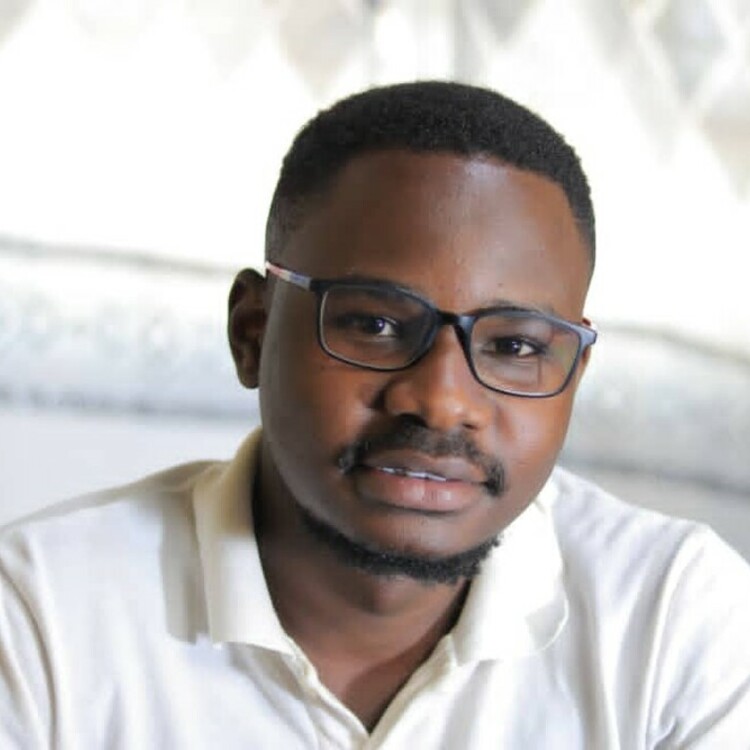
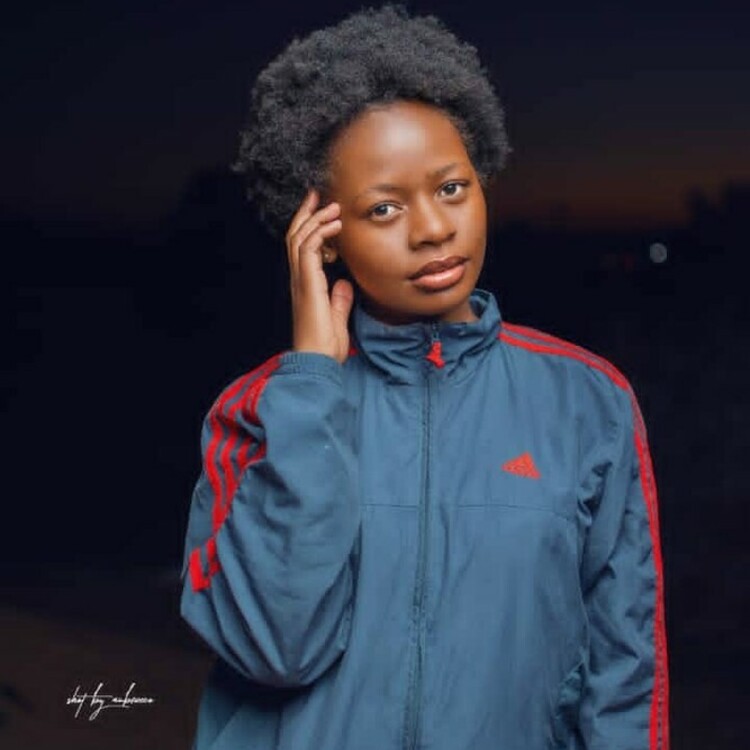

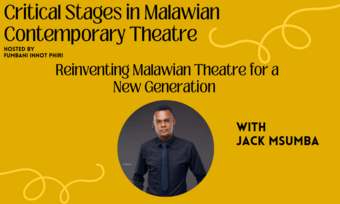


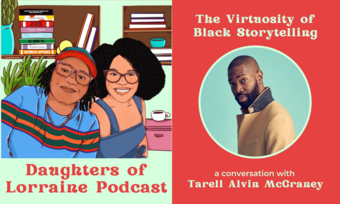



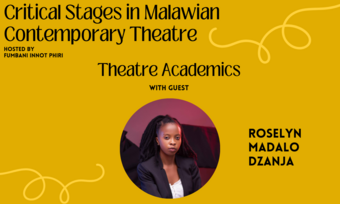

Comments
The article is just the start of the conversation—we want to know what you think about this subject, too! HowlRound is a space for knowledge-sharing, and we welcome spirited, thoughtful, and on-topic dialogue. Find our full comments policy here